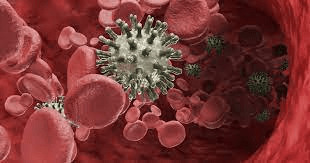The ancient meanings of the blood disorder symbolized issues of loss, abandonment and trouble with the harvest. Today, we will look into the spiritual meaning of blood disorders, blood clots, and the biblical meaning of blood in dreams. For modern man, it more often indicates things related to the heart and the circulatory system, especially diseases such as deep vein thrombosis, arterial disorders and the heart in general. The blood disorder could be an internal one, such as a tumor. It might also be an external one, perhaps brought on by evildoing or adversaries.
A blood disorder is a disease that affects the blood, its cells and its structure. It can be caused by many factors and can affect people of all ages. There are many different types of blood disorders, including anemia, coagulation disorders, hemolytic disorders, leukopenia and thrombocytopenia.
Take the time to visit our catalog right here on Churchgists for prompt information on the spiritual mysteries of blood pdf, spiritual power of blood, drinking blood spiritual, amongst others. You don’t want to miss this!
Spiritual Meaning of Blood Disorder
The spiritual meaning of blood disorder is that it can be used as a metaphor for your life’s journey. It represents all aspects of your life—from birth to death—and how you should be able to make peace with those things that have happened in your life. Blood disorder is also associated with karma and fate because it can represent how much control you have over your own life and how much control other people have over yours.
Blood is considered the essence of life for a body. The presence of healthy blood in the body is essential to sustaining life. But when we suffer from some blood disorder, it can be very dangerous and even risky to our health and well-being. To get more information on blood disorders, you can refer to [insert URL].
Blood Clots Spiritual Meaning

A blood disorder can be a scary, confusing disease that makes you feel like you’re losing control of your body. But there’s a spiritual side to the disorder, too, and it’s important to remember that when you’re feeling overwhelmed or afraid.
Blood disorders can be caused by stress, anxiety and depression. If you are experiencing any of these feelings, it is important to talk to your doctor about how they might be affecting your blood disorder. Your doctor can also help you find ways to manage these feelings so they don’t interfere with your treatment.
Blood disorders are often related to an imbalance in the body’s flow of energy or chi (pronounced chee). Chi flows through our bodies in channels called meridians. There are 12 major meridians that run up our arms and legs and all over our bodies; they connect us with all aspects of life on Earth—the sun and moon cycles, seasons and weather patterns, plants and animals—and beyond into space itself! When there is an imbalance in our energy flow or chi flow, it disrupts this connection between ourselves and everything else around us as well as within ourselves. This can cause physical symptoms such as fatigue or weakness; psychological symptoms such as depression or anxiety; or emotional
Blood disorders can be a sign of something spiritually wrong. Blood is a symbol of life and vitality, so when your blood is not doing what it should be doing, it can be a reflection of some larger problem. Blood disorders may indicate that you are living in an unhealthy way or that you have been unable to take care of yourself properly.
The best way to read this is as a warning: if your blood disorder persists, it may lead to serious problems further down the road. It’s important to heed this warning and make changes in your life so that you can get back on track spiritually.
Why Should I Know About Blood Conditions?
When something is wrong with your blood, it can affect your total health. That is why it is important for you to know about some of the common blood disorders that may affect you.
Blood cancers and conditions of many different types may affect people. Common blood disorders include anemia, bleeding disorders such as hemophilia, blood clots, and blood cancers such as leukemia, lymphoma, and myeloma.
Talking to your doctor is the first step to take if you believe you may have a blood condition. If you are diagnosed with a blood disorder, your doctor may refer you to a hematologist.
What is Hematology?
Hematology is the study of blood in health and disease. It includes problems with the red blood cells, white blood cells, platelets, blood vessels, bone marrow, lymph nodes, spleen, and the proteins involved in bleeding and clotting (hemostasis and thrombosis). A hematologist is a medical doctor who applies this specialized knowledge to treat patients with blood conditions.
https://youtube.com/watch?v=YYqF78m5EW4%3Fshowinfo%3D0%26theme%3Dlight%26modestbranding%3D1%26enablejsapi%3D1%26origin%3Dhttps%253A%252F%252Fwww.hematology.org
Learn more about the types of diseases that hematologists study and treat, as well as the importance of having a hematologist as part of your health-care team.

Some kinds of cancer and cancer treatment can cause bleeding problems. Bleeding problems can also be caused by another condition that is not cancer. Cancer and cancer treatment can make existing bleeding problems worse. Bleeding problems can also affect the type of treatment you receive.
Normal blood clotting is called coagulation. It is a complex process that involves certain types of blood cells and proteins. The blood cells are small cells called platelets. The proteins involved in clotting are called clotting factors or coagulation factors.
Platelets and coagulation factors act together to heal broken blood vessels. This helps control bleeding. A blood disorder occurs when:
- Clotting factors are missing or damaged
- The blood has too few platelets
- Platelets do not work correctly
What are the signs and symptoms of bleeding problems?
People with bleeding disorders may have the following signs and symptoms:
- Cuts that bleed too much or for too long
- Unexpected or sudden bruising
- Small purple or red spots under the skin, called petechiae
- Blood in vomit that can look like coffee grounds
- Black or bloody bowel movements
- Red or pink urine
- Dizziness, headaches, or changes in vision
- Joint pain
- Gum or nose bleeds
- Menstrual periods that are heavier or longer than usual
Talk with your health care team about any symptoms of bleeding problems that you have. Be sure to report new symptoms or a change in your symptoms. This will help your health care team better understand the problem and how to treat it. Relieving side effects is an important part of cancer care and treatment. This is called palliative care or supportive care. It helps meet the physical, emotional, and social needs of the person with cancer.
How are bleeding problems diagnosed?
To diagnose bleeding problems, your health care team will review your medical history, perform a physical exam, and take a sample of your blood. The sample may be used for several blood tests, including:
- Complete blood count (CBC)
- Tests to check the speed of blood clotting
- Tests to check for blood protein deficiencies
What causes bleeding problems when you have cancer?
Bleeding problems can be caused by cancer or cancer treatment. A bleeding problem can also have a cause that is not related to cancer.
Bleeding problems can be caused by:
- Inherited disorders, like hemophilia and von Willebrand’s disease. With hemophilia, blood does not clot normally. With von Willebrand’s disease, clotting factors are missing or do not work well.
- A low level of vitamin K
- Cancer that begins in or spreads to the liver
- Other liver disorders, including hepatitis and cirrhosis
- Long-term use of powerful antibiotics or anticoagulants, which is medication that thins the blood
- Some over-the-counter medications, like non-steroidal anti-inflammatory drugs (NSAIDs), aspirin, and medications that include NSAIDs or aspirin can cause bleeding problems or make them worse
- Drugs called angiogenesis inhibitors, which prevent the growth and development of new blood vessels to treat certain types of cancer
- Thrombocytopenia or a low platelet count
- Anemia, which is an unusually low level of red blood cells
- Other disorders unrelated to cancer
How are bleeding problems treated when you have cancer?
Whenever possible, the health care team will treat the underlying cause, such as cancer or liver disease, to stop the bleeding problem. Additional treatments may include:
- Vitamin K injections
- Drugs that help the blood clot
- Blood plasma or platelet transfusions
- Other medications to treat platelet problems, including hydroxyurea (Droxia, Hydrea) and oprelvekin (Neumega)
Questions to ask the health care team
Consider asking your health care team the following questions about bleeding problems:
- Does my cancer or cancer treatment put me at risk for developing bleeding problems?
- What signs of bleeding problems should I watch for? Which ones should I tell you about right away?
- If a bleeding problem occurs after hours, what should I do?
- What is causing my bleeding problems?
- How can my bleeding problems be treated?
- Will I need transfusions? How often?
- If I need mental health support with coping with this problem, who can I talk with?
Biblical Meaning of Blood In Dreams
Blood disorder
The blood that flows through our veins is a spiritual symbol of our connection to the universe. It is the life-giving force that connects us to everything else in the world, and when it flows freely, we feel connected with all that is around us.
When there are problems with the flow of our blood, we feel disconnected from the universe and from others. When our blood gets stuck or blocked up, we feel like there’s something standing between us and everyone else—something preventing us from being truly connected with those around us.
A blood disorder can be a symbol of feeling stuck in your life and unable to move forward, or of feeling cut off from others. It can also represent a fear of being vulnerable or getting hurt by someone close to you.